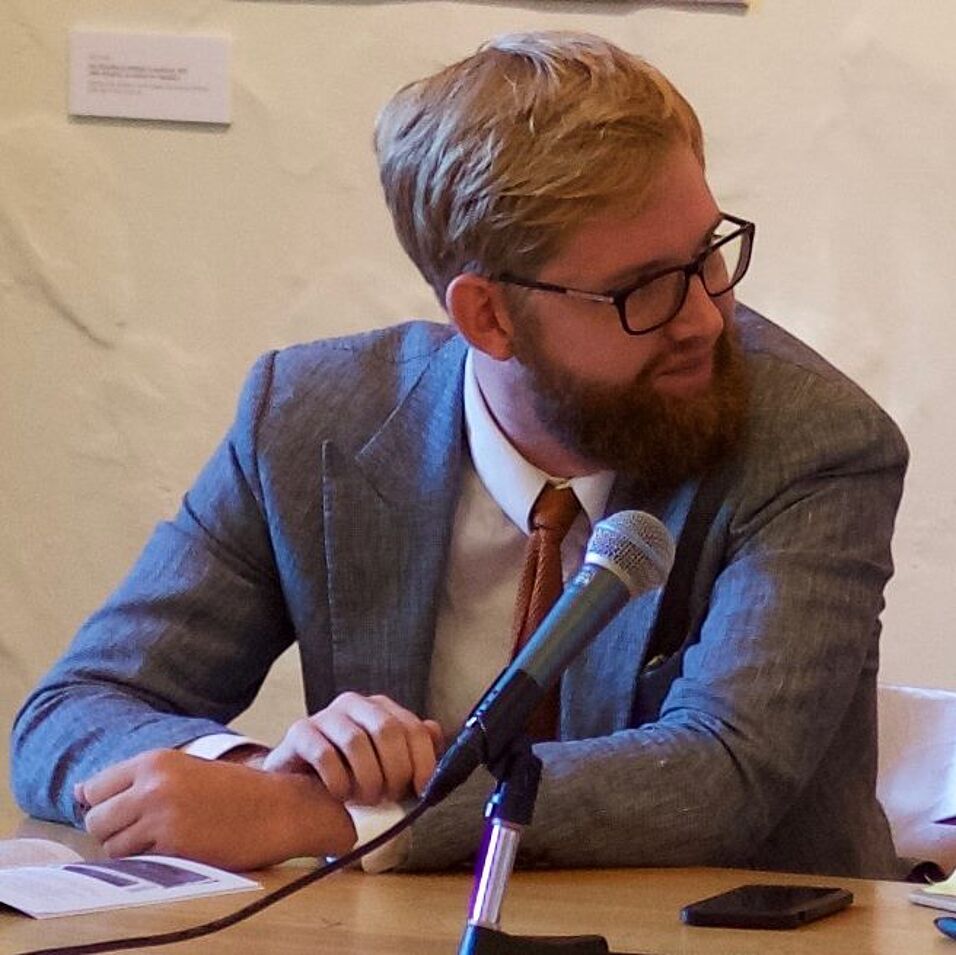In this talk, I will examine the practice of particular forms of recitation found in pre-classical Hindu and Buddhist texts, in which the reciter impersonates a founding figure. First, I will argue that as far back as the Vedic period this form of recitation serves both a soteriological and a sociological objective. The first is religious practice of self-transformation, in which the speaker emulates and assimilates to the idealized founding figure. This transformed self is not only ontologically transformed, but also a socially-transformed self which is placed in a succession of socially-transformed selves, which is to say that verbal emulation is a strategy of creating a nonbiological genealogy, which we might conceive of as a "lineage" or a "tradition". More concretely, we will see that a common "culture of recitation" has formed texts as different from one another as the Lotus Sutra and the Bhagavad Gītā.
Caley Charles Smith is a Visiting Assistant Professor of Religious Studies at Young Harris College. His research focuses on oral traditions and the influence of embodied textuality on South Asian religious and philosophical history

